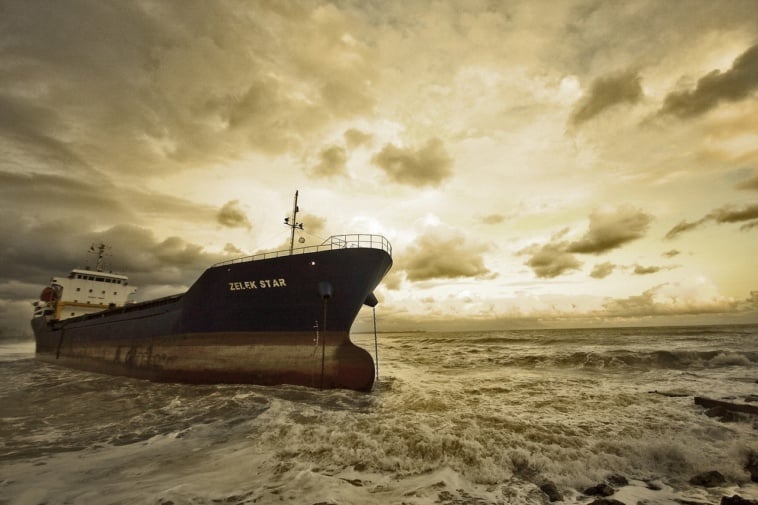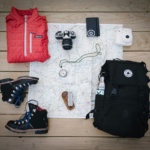Imagine the excitement of a summer day spent out on the water, the wind in your hair and the sun warming your skin. But what if that day took an unexpected turn, with the calm waves turning turbulent and the boat careening off course? In this article, we will explore the harrowing experience of a boating accident, delving into the adrenaline-pumping moments that followed, and the valuable lessons learned from such a terrifying event. Brace yourself for a tale that will leave you on the edge of your seat, reminding you of the importance of safety and preparedness when embarking on any boating adventure.
Causes of Boating Accidents
Inexperienced operators
One of the leading causes of boating accidents is inexperienced operators. When individuals lack proper training and knowledge about boating safety, they are more likely to make mistakes that can result in accidents. Operating a boat requires skill and understanding of navigation rules and procedures. Without proper training, inexperienced operators may struggle to control the boat, misjudge distances, or fail to react appropriately in different situations. It is crucial for beginner boaters to enroll in a boating safety course to learn the necessary skills and knowledge to operate a boat safely.
Alcohol and drug use
Another significant factor in boating accidents is alcohol and drug use. Just like operating any vehicle while under the influence, boating under the influence can impair judgment, reflexes, and coordination. Alcohol can intensify the effects of sun, wind, and motion, making it difficult for the operator to navigate safely. The consumption of drugs and alcohol can also impact the decision-making process, leading to poor choices that can result in accidents. It is essential for boaters to avoid alcohol and drugs while operating boats to maintain a clear mind and ensure everyone’s safety.
Excessive speeding
Excessive speeding is a common cause of boating accidents. When boaters operate their vessels above the speed limits, they have less time to react to obstacles or sudden changes in their surroundings. Higher speeds also increase the risk of collisions, especially in crowded waterways or when visibility is reduced. Additionally, excessive speeding can cause the boat to become unstable, leading to difficulties in maneuvering and potentially resulting in capsizing or loss of control. It is crucial for boaters to adhere to speed limits and adjust their speed according to the prevailing conditions to prevent accidents.
Equipment failure
Equipment failure is a factor that can contribute to boating accidents. Malfunctioning or inadequate equipment, such as faulty steering systems, engine failures, or propulsion issues, can increase the risk of accidents. Inadequate maintenance, improper repairs, or neglecting to inspect the boat regularly can lead to equipment failures. Boat owners should prioritize regular maintenance and ensure their vessels are in good working condition before each trip. By conducting routine inspections and promptly addressing any issues, boaters can minimize the likelihood of accidents caused by equipment failure.
Weather conditions
Weather conditions play a significant role in boating accidents. Powerful winds, rough waters, fog, or sudden storms can create hazardous situations on the water. In extreme cases, adverse weather conditions can cause capsizing, swamping, or grounding accidents. It is important for boaters to carefully assess the weather forecast before heading out and keep a close eye on changing weather patterns throughout their trip. With proper planning and awareness of weather conditions, boaters can minimize the risk of accidents caused by unfavorable weather.
Common Types of Boating Accidents
Collision with another vessel
Collisions with other vessels are among the most common types of boating accidents. These accidents can occur when two boats collide due to factors such as operator inattention, failure to yield, or miscommunication. Collisions can result in severe damage to the vessels involved, injuries to passengers, and even fatalities. To prevent collisions, boaters must maintain a proper lookout, follow navigation rules, and communicate effectively with other boaters, especially in congested areas.
Capsizing
Capsizing, or the overturning of a boat, is another common type of boating accident. Capsizing can occur due to factors such as rough waves, high-speed turns, overloaded boats, or operator error. When a boat capsizes, occupants can be thrown into the water, potentially leading to injuries or drowning. To prevent capsizing, boaters should ensure that their vessels are properly loaded, maintain a balanced weight distribution, and operate at safe speeds, especially in challenging conditions.
Grounding
Grounding accidents happen when a boat runs aground, meaning it comes into contact with the bottom of a body of water, such as a sandbar or rocks. Grounding accidents often occur when boaters navigate in shallow or unfamiliar waters, or when relying solely on navigational aids. Grounding can cause damage to the hull, propulsion systems, and other components of the boat. To avoid grounding accidents, boaters should carefully study navigational charts, stay within marked channels, and operate at appropriate speeds to maintain control.
Flooding or swamping
Flooding or swamping accidents involve the boat filling with water, either due to rough waters, big waves, or poor vessel maintenance. Flooding can compromise the stability and buoyancy of the boat, leading to instability and potentially sinking. It is crucial for boaters to regularly inspect and maintain their boats, ensuring that bilge pumps and drainage systems are in working order. When boating in rough conditions, it is important to take appropriate precautions, such as reducing speed and avoiding waves that may overwhelm the boat.
Falling overboard
Falling overboard accidents occur when a person onboard a boat unexpectedly falls into the water. These accidents can happen due to various reasons, including loss of balance, slippery surfaces, or sudden boat movements. Falling overboard can be dangerous, especially if the person is not wearing a life jacket or if the boat is moving at high speeds. To prevent falling overboard accidents, boaters should always wear a properly fitted life jacket and take precautions, such as maintaining three points of contact and moving slowly and carefully on board.

Immediate Actions After an Accident
Check for injuries
After a boating accident, the first step is to check for any injuries among the occupants of the boat. Attend to any immediate medical needs and provide assistance to those who may be injured. If necessary, call emergency medical services for professional medical attention.
Activate emergency signals
In the event of a boating accident, it is crucial to activate emergency signals to alert nearby boats or rescue services. This may include using distress signals such as flares or emergency beacons. These signals can help attract attention and indicate that there is an emergency situation that requires assistance.
Ensure everyone is wearing a life jacket
After a boating accident, it is essential to ensure that everyone on board is wearing a life jacket. If someone is not wearing one, provide them with a properly fitted life jacket immediately. Life jackets can greatly increase the chances of survival in the water, especially if individuals are injured or unable to swim.
Call for help or emergency services
Once immediate medical needs are addressed and emergency signals are activated, call for help or emergency services. Contact the appropriate authorities, such as the Coast Guard or local law enforcement, and provide them with all the necessary information about the accident, including the location and the number of people involved.
Assess the damages
Following a boating accident, it is important to assess the damages to the boat and its equipment. Document any visible damage, take photographs if possible, and note any areas that may require immediate attention or repairs. This information will be useful when filing an accident report with the appropriate authorities or insurance company.
Legal Obligations and Reporting
Identifying the parties involved
After a boating accident, it is essential to identify all parties involved. This includes obtaining contact information, boat registration details, and insurance information from the other parties involved in the accident. It is crucial to gather accurate and complete information to facilitate the reporting and insurance claims processes.
Filing a boating accident report
In many jurisdictions, boating accidents must be reported to the appropriate authorities. Depending on the severity of the accident and local regulations, a boating accident report may need to be filed. This report typically includes details about the accident, parties involved, injuries, damages, and any other relevant information. Reporting the accident ensures that it is properly documented and can aid in investigations or legal proceedings if necessary.
Cooperating with law enforcement
When involved in a boating accident, it is essential to cooperate fully with any law enforcement officials who respond to the scene. Provide them with all the necessary information and answer their questions truthfully. Cooperating with law enforcement demonstrates a commitment to safety and compliance with boating regulations.
Seeking legal advice
Boating accidents can have legal implications, especially if injuries, significant damages, or negligence are involved. It may be beneficial to seek legal advice from a qualified attorney who specializes in boating accidents. They can provide guidance on the legal aspects of the situation, including insurance claims, potential liability, and any legal actions that may need to be taken.
Insurance claims
If the boat is insured, it is important to contact the insurance company promptly to initiate the claims process. Provide them with all the necessary information, including the accident report, photographs of damages, and any supporting documentation. Insurance claims can help cover the costs of repairs, medical expenses, and other damages incurred as a result of the accident.

The Importance of Safety Equipment
Life jackets or personal flotation devices (PFDs)
Life jackets, also known as personal flotation devices (PFDs), are one of the most crucial pieces of safety equipment for boaters. They are designed to keep individuals afloat and provide buoyancy in the water. It is important to wear a properly fitted life jacket at all times, especially when boating, as it can save lives in the event of an accident or unexpected immersion in water.
Fire extinguishers and flares
Fire extinguishers and flares are essential safety equipment to have on board a boat. In the event of a fire onboard, a fire extinguisher can help control or extinguish the flames before they spread. Flares are used as a visual distress signal, especially in low light or emergency situations, to attract attention and signal the need for assistance.
Navigation lights
Navigation lights are required safety equipment for boating during low light conditions or at night. Properly functioning navigation lights allow other boaters to see the vessel’s position, direction of travel, and whether it is underway or at anchor. By ensuring that navigation lights are in working order, boaters can enhance visibility and minimize the risk of collisions.
Sound-producing devices
Sound-producing devices, such as whistles or horns, are important safety tools to have on board. They are used to communicate audible signals to other boaters, especially in situations where visibility may be limited or compromised. Sound-producing devices can help indicate intention, provide warnings, or signal distress, aiding in maintaining safe distances and preventing accidents.
Marine radio or cell phones
Having reliable communication devices, such as a marine radio or cell phones, is crucial for boating safety. They allow boaters to communicate with other vessels, marinas, or emergency services in case of an emergency or when assistance is needed. Communication devices provide a means to quickly and effectively relay information, improving response times in critical situations.
Preventing Boating Accidents
Obtain proper boating education and license
One of the most effective ways to prevent boating accidents is by obtaining proper boating education and acquiring the necessary license or certification. Boating safety courses provide valuable knowledge and skills on topics such as navigation rules, safe maneuvering, emergency procedures, and understanding weather conditions. By investing in boating education, boaters can enhance their ability to operate vessels safely and responsibly.
Never operate a boat under the influence
Operating a boat under the influence of alcohol or drugs is illegal and significantly increases the risk of accidents. To prevent boating accidents, it is crucial to avoid alcohol and drug consumption while operating a boat. Impaired judgment, decreased reaction times, and reduced coordination can lead to poor decision-making and an increased likelihood of accidents. Designated a sober operator or arrange for alternative transportation if alcohol or drugs are to be consumed.
Follow speed limits and navigation rules
Adhering to speed limits and navigation rules is a fundamental aspect of boating safety. Speed limits are established to ensure safe operation and prevent accidents, especially in congested areas or where there are restricted visibility conditions. Similarly, navigation rules dictate how vessels should move in relation to one another to prevent collisions and maintain safe distances. By following speed limits and navigation rules, boaters can avoid unnecessary risks and promote a safer boating environment.
Regularly inspect and maintain the boat
Proper boat maintenance is essential for preventing accidents. Regular inspections, servicing, and maintenance of the boat’s equipment, engines, and structural components can help identify and address potential issues before they become safety hazards. Check and maintain critical systems, such as propulsion, steering, electrical, and fuel systems, to ensure they are in good working condition. By taking proactive care of the boat, boaters can minimize the risk of accidents caused by equipment failure.
Stay alert and aware of surroundings
Maintaining situational awareness is crucial to preventing boating accidents. Boaters should always stay vigilant, actively scan the surroundings, and remain attentive to other vessels, obstacles, and potential hazards. It is important to anticipate and react to changing conditions, such as the presence of other boats, changes in weather, or sudden changes in water depth. By staying alert and aware, boaters can take proactive measures to avoid accidents and ensure the safety of all passengers on board.

Boating Accident Statistics
Incidence of boating accidents
Boating accidents are more common than one might think. According to the U.S. Coast Guard’s annual Recreational Boating Statistics report, there were approximately 4,463 reported accidents involving recreational vessels in the United States in 2020. This figure includes a wide range of accidents, from minor incidents to those resulting in fatalities or significant injuries.
Fatalities and injuries
Boating accidents can have severe consequences, resulting in fatalities and injuries. In 2020, there were 767 reported fatalities due to boating accidents. These fatalities often occur as a result of drowning, trauma from collisions or capsizing, or prolonged exposure to water. Additionally, there were 3,191 reported injuries ranging from minor cuts and bruises to more severe injuries requiring medical attention.
Contributing factors
Multiple factors contribute to boating accidents. Alcohol or drug use continues to be a leading contributing factor, with alcohol being the primary factor in approximately 18% of fatal accidents. Other contributing factors include operator inattention, improper lookout, excessive speed, operator inexperience, and machinery failure.
Popular boating accident locations
Boating accidents can happen in various bodies of water, but some locations have higher incidences than others. Lakes, rivers, and coastal areas are common settings for boating accidents. Popular boating destinations and heavily trafficked waterways often have a higher number of accidents due to the increased volume of boats and potential hazards.
Trends and patterns
Analyzing boating accident statistics reveals certain trends and patterns. For example, the majority of fatal boating accidents involve boats less than 26 feet in length. Additionally, accidents involving open motorboats, personal watercraft, and cabin motorboats are more prevalent compared to other types of vessels. The analysis of boating accident statistics helps identify areas of concern and guides efforts to improve boating safety measures.
Tips for Boating Safety
Attend a boating safety course
Obtaining proper boating education is crucial for boating safety. Consider attending a boating safety course offered by various organizations and agencies. These courses cover topics such as navigation rules, safety procedures, emergency preparedness, and understanding weather conditions. Boating safety courses equip boaters with the knowledge and skills necessary to navigate waterways safely and responsibly.
Always wear a life jacket
Wearing a life jacket is a vital safety measure for boaters of all ages and skill levels. Ensure that every person on board wears a properly fitted life jacket. Life jackets provide buoyancy, support, and increased survivability in the event of an accident or immersion in water. Make sure to select the appropriate type and size of life jacket for each individual, including children and non-swimmers.
Carry necessary safety equipment
Carrying the necessary safety equipment on board is essential for boating safety. This includes items such as life jackets, fire extinguishers, flares, sound-producing devices, navigation lights, and communication devices. Regularly check and maintain these safety items to ensure they are in good working condition and readily accessible in case of an emergency.
Maintain a proper lookout
Maintaining a proper lookout is critical to identifying potential hazards and avoiding accidents. Assign someone on board to keep a vigilant watch for other vessels, navigation aids, swimmers, or any obstructions in the water. Continuously scan the surroundings, especially in congested areas or when visibility is reduced. A proactive lookout can provide valuable time to react and take evasive actions, preventing accidents.
Avoid boating during adverse weather
Adverse weather conditions can significantly increase the risk of accidents. High winds, heavy rain, fog, or storms can create hazardous situations on the water. Before heading out, always check the weather forecast and be prepared to adjust plans or delay the trip if adverse conditions are expected. When boating, closely monitor changing weather patterns and take immediate action to seek shelter or return to a safe harbor if conditions deteriorate.
Recovering from a Boating Accident
Physical and emotional recovery
Recovering from a boating accident involves both physical and emotional aspects. Physical recovery may include seeking medical attention for any injuries sustained during the accident. It is important to consult healthcare professionals who can evaluate and treat injuries adequately. The recovery process may also involve rehabilitation, physical therapy, or any necessary surgeries or medical interventions.
Emotional recovery is equally important after a traumatic event. Boating accidents can cause distress, anxiety, and post-traumatic stress. Seeking support from friends, family, or professionals trained in trauma counseling can assist in coping with the emotional impact of the accident. Gaining emotional stability and processing the experience is crucial for moving forward.
Seeking medical attention
Seeking medical attention after a boating accident is essential, even if injuries appear minor at first. Some injuries may only manifest symptoms later, and prompt medical evaluation can ensure early detection and treatment. Depending on the severity of injuries, medical attention may involve visits to emergency rooms, urgent care facilities, or follow-up appointments with primary care physicians or specialists.
Trauma counseling
Experiencing a boating accident can leave individuals traumatized and emotionally distressed. Trauma counseling can be beneficial for those struggling with the psychological effects of the accident. Professional therapists or counselors trained in trauma can help individuals process the experience, manage anxiety or post-traumatic stress, and develop coping mechanisms for moving forward.
Repairing or replacing the boat
Following a boating accident, the boat may require repairs or replacement. Depending on the extent of damage, it may be necessary to consult a marine surveyor or boat repair specialist to assess the damages and provide an estimate for repairs. In some cases, the boat may be deemed irreparable, requiring the purchase of a new vessel. Boat owners should work with reputable professionals to ensure the repairs or replacement are conducted thoroughly and safely.
Legal and financial considerations
Boating accidents can have legal and financial implications. Depending on the circumstances of the accident, it may be necessary to consult with a boating accident attorney to understand the legal rights, liabilities, and options available. Additionally, boaters should consider their financial obligations, including financing repairs, medical expenses, or potential legal settlements. Working with legal and financial professionals can help navigate these complex considerations and protect individual interests.
Conclusion
Boating accidents can have serious consequences, affecting individuals physically, emotionally, and financially. It is crucial for boaters to prioritize safety by practicing proper boating education, adhering to regulations, and understanding the risks involved. The responsibility to prevent accidents lies with every boater, operator, and passenger. By following safety measures, maintaining equipment, and staying vigilant, boaters can contribute to a safer boating environment for everyone. Continuous education, awareness, and a commitment to safety are key in preventing accidents and promoting enjoyable and memorable boating experiences.





